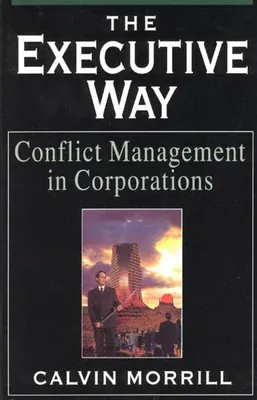What causes conflict among high-level American corporate executives? How
do executives manage their conflicts? Based on candid interviews with
over two hundred executives and their support personnel, Calvin Morrill
provides an intimate portrait of these men and women as they cope with
problems usually hidden from those outside their exclusive ranks.
Personal and corporate scandals, compensation battles, budget worries,
interdepartmental rivalries, personal enmities, and general rancor are
among everyday challenges faced by executives. Morrill shows what most
influences the way managers handle routine conflicts are the cultures
created by their company's organizational structure: whether there is a
strong hierarchy, a weak hierarchy, or an absence of any strong central
authority. The issues most likely to cause conflict within corporations
Morrill identifies as managerial style, competition between departments,
and performance evaluations, promotions, and compensation.
Among the people whose day-to-day lives we get to know are Jacobs, a
divisional executive whose intuitive understanding of the corporate
hierarchy enables him to topple his incompetent superior without direct
confrontation; Fuller, who through a mix of brains, guile, and
connections rises from staff executive secretary to corporate vice
president in a large bank; Green, an old-fashioned accounting partner in
a firm being taken over by management consultants; and the "Princess of
Power, " "Iron Man, " and the "Terminator"--executives fightin their way
to the top of a successful entertainment company.
Unprecedented in its direct access to top managers, this portrayal of
daily life and conflict management amongcorporate elites will be of
interest to professionals, scholars, and practitioners in organizational
culture and behavior, managerial decision making, dispute, social
control, law and society, and organizational ethnography.

